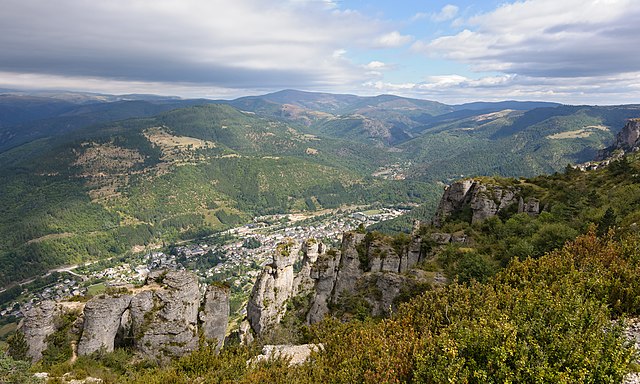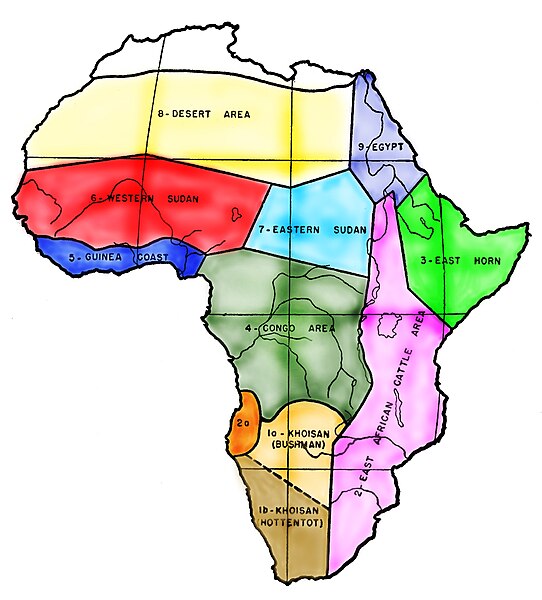The Cévennes is a cultural region and range of mountains in south-central France, on the south-east edge of the Massif Central. It covers parts of the départements of Ardèche, Gard, Hérault and Lozère. Rich in geographical, natural, and cultural significance, portions of the region are protected within the Cévennes National Park, the Cévennes Biosphere Reserve (UNESCO), as well as a UNESCO World Heritage Site: Causses and the Cévennes, Mediterranean agro-pastoral Cultural Landscape. The area has been inhabited since 400,000 BCE and has numerous megaliths which were erected beginning around 2500 BCE. As an agriculturally-rich area, but not a suitable location for cities, the Cévennes developed a wide diversity of pastoral systems, including transhumance. The irrigation and road networks put in place in the early Middle Ages for these pastoral systems are still in use today.
The Gorges du Tarn
Cévennes view
Les Cévennes from le mont Aigoual
In anthropology and geography, a cultural area, cultural region, cultural sphere, or culture area refers to a geography with one relatively homogeneous human activity or complex of activities (culture). Such activities are often associated with an ethnolinguistic group and with the territory it inhabits. Specific cultures often do not limit their geographic coverage to the borders of a nation state, or to smaller subdivisions of a state.
Cultural areas of Africa as defined by Melville J. Herskovits




